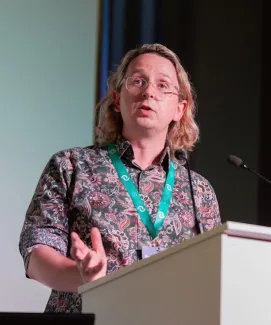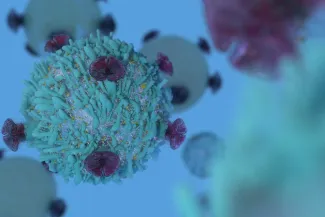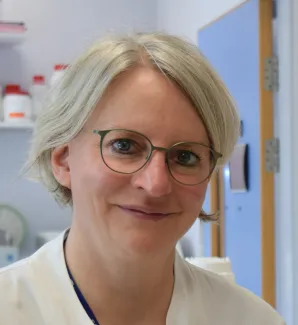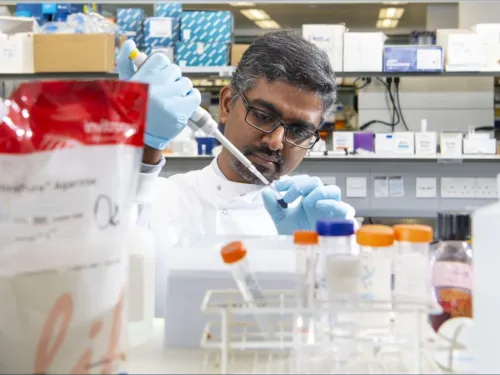The project is funded with support from CCLG Special Named Funds – #PearlPower, Kieran Maxwell Legacy, Rosie Rocks the World, and the David Vernon Fund – as part of an £800,000 collaboration with the Bone Cancer Research Trust, the Ewing’s Sarcoma Research Trust, and Great Ormond Street Hospital Charity.
Led by Professor Martin McCabe at the University of Manchester, the research is part of the ongoing rEECur clinical trial, an international study aiming to identify the most effective treatments for recurrent or treatment-resistant Ewing sarcoma. However, choosing an effective treatment is dependent on understanding the cancer.
Doctors currently use a range of factors, such as tumour location or time since diagnosis, to help predict how a patient’s disease may progress. But these predictions are difficult to make and can sometimes lead to uncertainty or a poor response to treatment.
Professor McCabe’s team is investigating whether blood-based biomarkers could provide a more accurate and reliable tool. Biomarkers are small molecules, like proteins or pieces of DNA, found in patients’ blood that could act as early warning signs - for example, showing when the cancer is returning or not responding to treatment.
Using blood samples collected by the rEECur trial, the researchers will study a series of possible biomarkers found in recurrent and treatment-resistant Ewing sarcoma. They will then compare the performance of various biomarkers with standard practice to show which is more accurate in predicting survival and treatment outcomes.
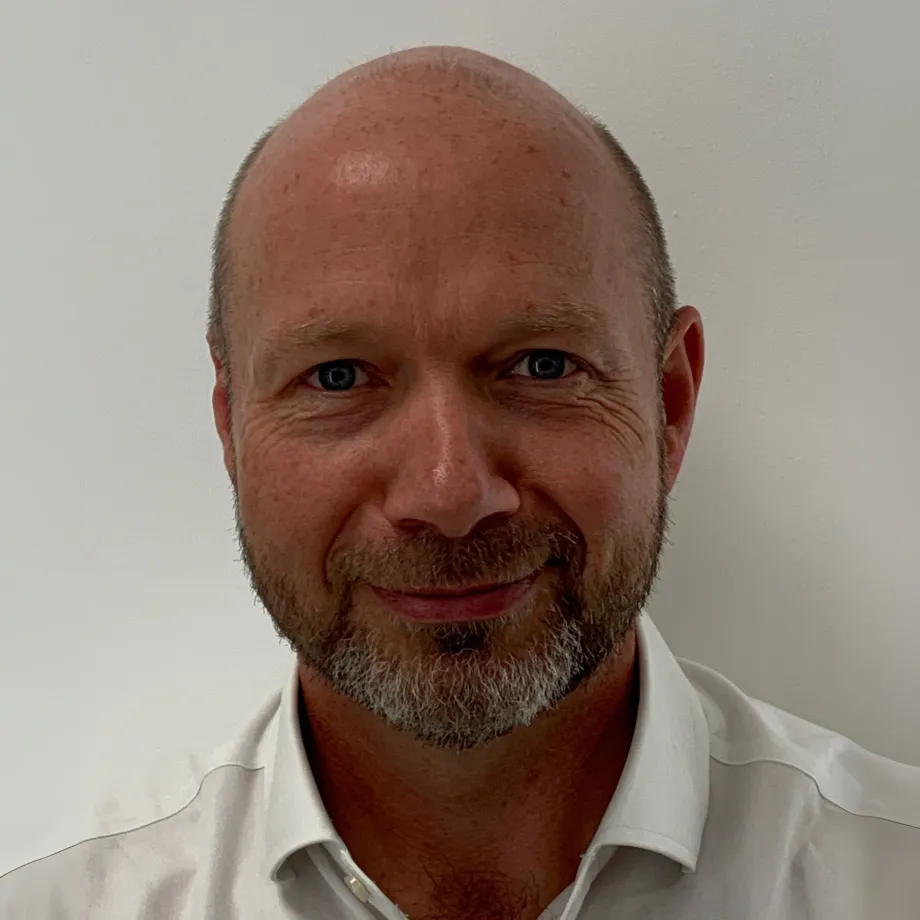
Professor Martin McCabe
Professor McCabe explained:
The results of this research will help to guide the most accurate approach to monitoring and predicting the course a patient’s disease will take, allowing for a more informed approach to the management of Ewing sarcoma. Ultimately, this project could pave the way towards their routine monitoring throughout a patient’s journey through diagnosis, treatment and follow-up, as part of standard care.
Vicki Brunt, Head of Fundraising at CCLG, said:
This research has the potential to make a real difference to how we care for young people with Ewing sarcoma. We’re proud to be funding research that could one day make a tangible difference to families, like our Special Named Funds, who have been affected by this cancer.

